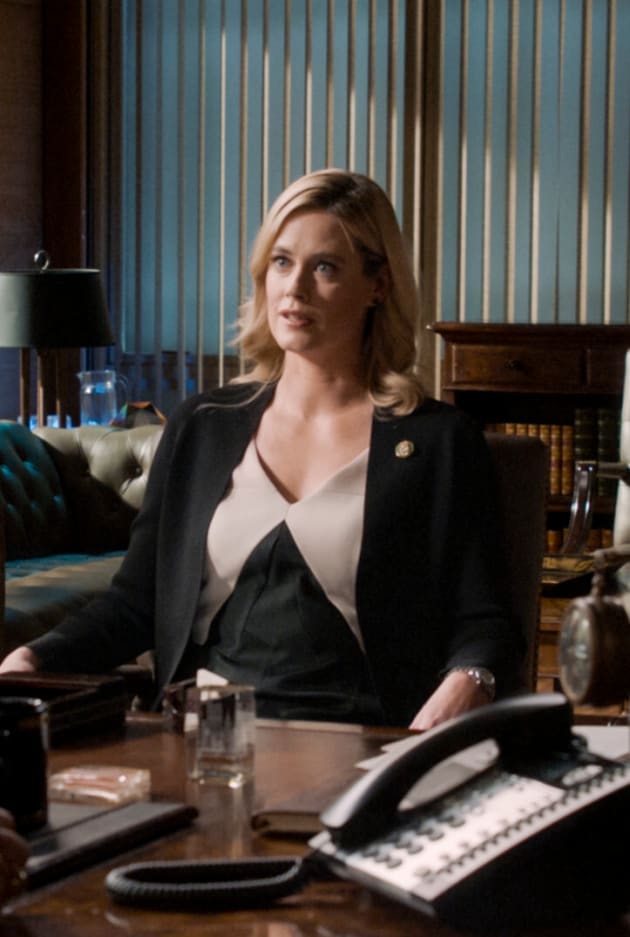
Blue Bloods has never shied away from complex issues. The series has often strived to show conflicts from the perspective of police officers without being heavy-handed or forcing any particular point of view on viewers.
Blue Bloods Season 13 Episode 16 was no exception. This episode offered a balanced, nuanced view of how racism impacts police decisions and whether a cop’s decision to participate in adult entertainment outside of working hours should be grounds for termination.
Both of these issues had the potential to be contentious, but Blue Bloods provided various viewpoints and left viewers to make up their own minds.
Most cop dramas have addressed racial tensions between people of color and police officers, but never quite like this.
Danny and Baez struggled to determine what was true after getting conflicting witness reports about a robbery suspect’s appearance, including the suspect’s race and gender. Rather than cops acting in an overtly racist way or being falsely accused of racism when none existed, this story left room for viewers to make up their minds about the truth.
Their difficulty came from the fact that all they had to go on was eyewitness reports. Eyewitness testimony is notoriously unreliable. Witnesses have their own biases and often don’t remember details accurately.
Baez: Were the witnesses lying or just racist?
Danny: Probably neither. Some did misidentify the race, but I think people filled in the blanks when it came to the face.
Baez: People do go off half-cocked these days.
Danny: The problem is, if we get it wrong they’re going to go off half-cocked on us.
Baez wondered whether the witness’ inability to agree on the suspect’s race meant they were racist. It was a fair question, especially considering that the real robber was a white kid with short hair, and many witnesses described the suspect as a person of color with long braids.
If the perp was running away from the scene, witnesses might not have gotten a good look at him, especially if they were distracted by something else.
Many neurotypical people’s brains filter out details perceived as unimportant; for this reason, many people will remember things that they focused on and might not even notice something happening in the background, even if it’s something that ought to be memorable.
In this case, the witnesses either didn’t see the perp or saw him so briefly that their brains didn’t register details such as skin color. Thus, the witnesses may have imagined he was a person of color because of their biases.
Most witnesses agreed that the suspect was a person of color, even if they didn’t agree on the specifics of his race. Thus, the cops assumed that the suspect was a person of color.
In a way, that’s understandable. Suppose half the witnesses had said the perp wore a blue jacket, and the other half said he wore a green jacket. Would it make sense for the cops to entertain the possibility that everyone was wrong and the perp’s jacket was red?
But since all eyewitness testimony should be taken with a grain of salt, it would also be reasonable to consider whether everyone had gotten the perp’s race wrong. It’s never a good idea to base your entire investigation on what people claim to have seen!
Still, the cops had limited time and no leads other than what witnesses told them, so they had to use that testimony as a starting point.
Similarly, it was easy to see both sides when Danny and Baez talked to Atkins. Atkins has likely had many questionable encounters with police officers. Hence, his defensiveness was understandable, but he immediately jumped to the idea that racism was the only reason for him ever to be detained.
That wasn’t true. Bias might have played a role in why Danny thought Atkins was lying about his involvement in the crime. Still, there was also circumstantial evidence that gave them a reasonable suspicion that he was involved.
In addition, they couldn’t ignore a bench warrant regardless of why Atkins didn’t show up for his court date.
Still, when the victim said his attacker was white, Danny had to ask himself some hard questions. The witnesses’ failure to report the suspect’s race accurately was on them, but Danny believed them and didn’t believe Atkins.
Even that wasn’t one thing or the other. Could racial bias have played a part? Definitely, especially for a cop who has arrested lots of Black and Brown people who WERE guilty of heinous crimes.
Police work puts cops in contact with the worst examples of humanity, especially those investigating violent crimes.
Guilty suspects tend to claim loudly that they are innocent, no matter their skin color, so Danny was probably skeptical for that reason too. But if he’d encountered many violent people of color over the years, that could reinforce existing prejudices or create new ones.
In the end, all Danny could do was what he did. He apologized to Atkins and made a commitment to do better in the future.
Will that satisfy everyone? Of course not, but it’s the best Danny — or anyone — can do.
I’m grateful that Blue Bloods depicted this issue in a balanced, nuanced way. This issue is important to discuss and deal with, but so many TV shows do it in a heavy-handed way that alienates people who don’t already believe that racism in policing is a problem.
Heavy-handed stories shut down these essential conversations. Blue Bloods’ approach was much better. It showed the issue from multiple perspectives rather than presenting it in an inherently divisive way.
Frank’s dilemma involved similar nuance.
Frank is usually a by-the-books kind of guy, but his rule book didn’t have 21st-century sensibilities in mind. Rules about “personal conduct unbefitting of an officer” were written long before there was an Internet or a health care crisis that left many blue-collar workers unable to provide for seriously ill family members.
Even within the Dream Team, there were a variety of opinions about whether Officer Gilson’s behavior fit the standard for termination, which demonstrated how complex this issue was.
Gilson was about to be commended for her bravery when the issue came up, which further complicated things.
Frank had to be careful because Gilson might have had a case for discrimination if he had fired her. She had demonstrated that she was more than capable of excellent police work, yet was being fired because of her private sexual activities, or so a lawyer might argue in court.
Given her record and that she went to great lengths to hide her true identity on the site so that her activities wouldn’t reflect poorly on the NYPD, she might have had a strong case.
Baker was right that times had changed. I disagree with Sean’s assessment that Generation Z doesn’t see why nudity is a big deal because they can see things on the Internet, but what this officer was doing had nothing to do with her job performance.
Most cops saw t that way. There always has to be one who acts all high and mighty.
I have to wonder what Justin gets up to in his spare time that he doesn’t want anyone to know about; usually, the people who come down hardest about someone else’s adult activities are doing something themselves that they feel guilty about.
Meanwhile, Jamie and Eddie worked a case together… sort of.
It was great for Jamko to be together again! These two haven’t shared many scenes since they married, never mind working on the same case.
Of course, Eddie wasn’t supposed to be working on this case, but she can’t help but look into what Jamie is doing, especially after learning he gave Tracey a phony story about wanting to invest in her business.
I don’t know why Sid, who is usually unapologetically on the side of any oop accused of misconduct, was so skeptical about Eddie’s claims that she didn’t find out about the case from Jamie.
Eddie’s far from stupid, and she’s friends with the target of the investigation! She would learn about it sooner or later, not necessarily from Jamie.
Erin’s story was resolved awfully quickly.
Blue Bloods missed one point: suicide isn’t usually triggered by one person or event. It’s a complicated issue and often occurs after a lengthy period of depression.
In this man’s case, it’s true that he might have decided that death was better than jail. If so, that was on him, not Erin.
Does anyone want to live in a world where you can’t fire an employee no matter what negative or illegal things they do because they might choose to kill themselves over it? I sure don’t, so let’s knock it off with the frivolous lawsuits.
What did you think, Blue Bloods fanatics? Hit the big, blue SHOW COMMENTS button and let us know!
Don’t forget you can watch Blue Bloods online whenever you’d like.
Blue Bloods airs on CBS on Fridays at 10 PM EST / PST.
Jack Ori is a senior staff writer for TV Fanatic. His debut young adult novel, Reinventing Hannah, is available on Amazon. Follow him on Twitter.


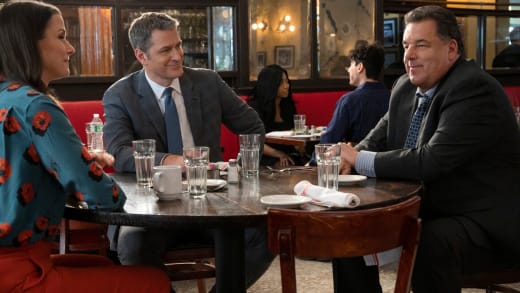


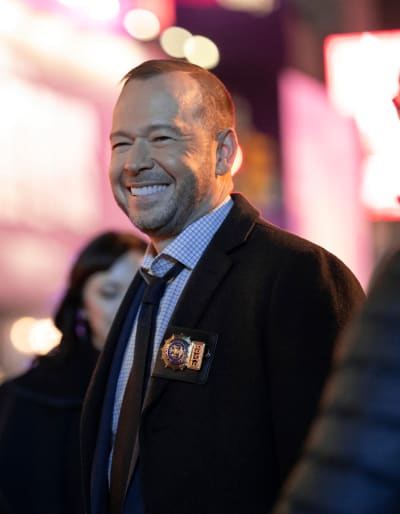
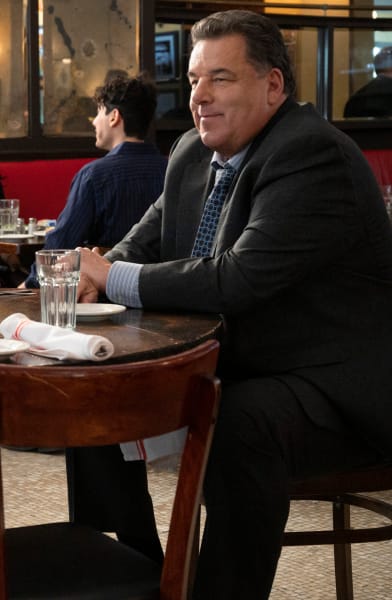
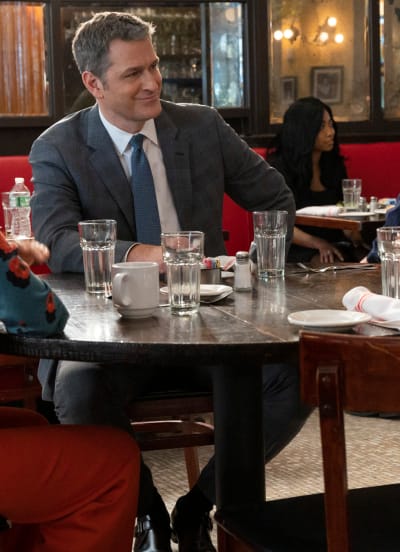




![The Last Summer | Official Trailer [HD] The Last Summer | Official Trailer [HD]](https://celebritynewsmag.com/wp-content/uploads/2021/12/maxresdefault-76-230x162.jpg)
